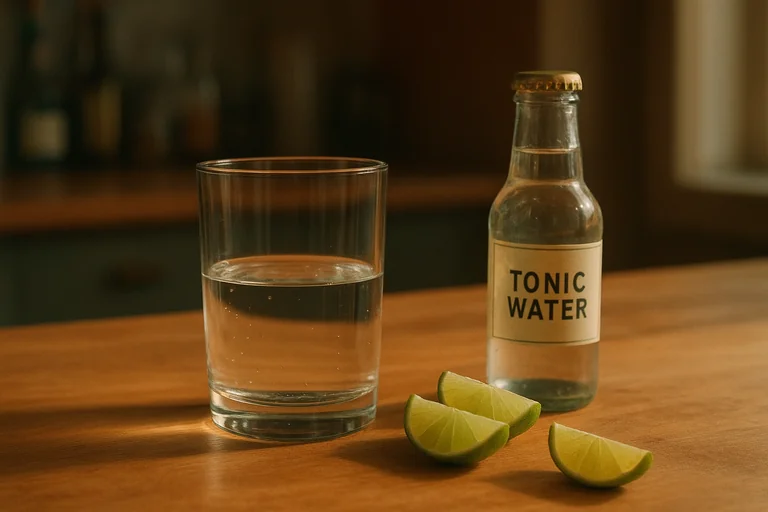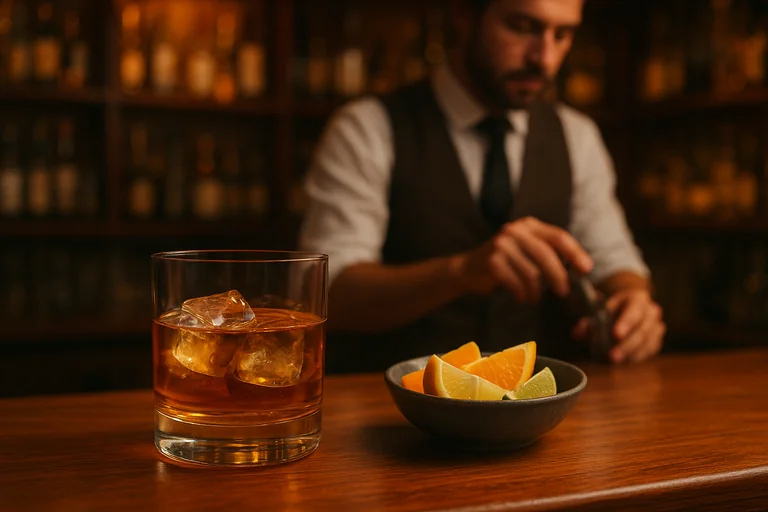A 2 minute assessment to get a personalized mental health or alcohol recovery plan.
Mindful drinking is about being present and aware when you consume alcohol so you can make better choices and drink less without the pressure to quit.
What You'll Discover:
- What mindful drinking is and the core principles behind it.
- How the sober curious movement relates to mindful drinking.
- Mindfulness techniques proven to reduce alcohol consumption.
- Health benefits of drinking more mindfully.
- Practical steps to start practicing mindful drinking.
- When mindful drinking isn't enough and additional support is needed.
Ever pour a glass of wine after work without thinking about it? Accept every drink offered at a party? Wake up regretting that last drink you didn't really want? You're not alone. Many people drink on autopilot, driven by habit, social pressure, or the desire to unwind.
Mindful drinking offers a different approach. It's the practice of being fully present and aware when you consume alcohol - paying attention to why you're drinking, how it makes you feel, and how much you're consuming. The goal is to make conscious choices aligned with your health goals rather than letting alcohol dictate your life.
What is Mindful Drinking?
At its core, mindful drinking applies the principles of mindfulness to alcohol consumption. The two main principles are awareness and non-judgmental acceptance.
Awareness means paying attention to the present moment. When you drink, notice the sensory details - the color, aroma, taste of your beverage. Pay attention to your thoughts, feelings, and physical sensations. Are you feeling relaxed? Dizzy? More talkative? This awareness helps you understand how alcohol truly affects you.
Non-Judgmental Acceptance means observing your thoughts and feelings without judging them as good or bad. Many people carry shame around their drinking. Practicing acceptance creates space for honest self-reflection and change.
The Sober Curious Movement
Mindful drinking is closely linked to the "sober curious" movement - a growing trend of people questioning their relationship with alcohol and exploring the benefits of drinking less without the pressure to quit completely.
The numbers are significant. A 2024 study from NIAAA found that 9% of young adults aged 18-29 are familiar with the sober curious movement, and 7% have participated in temporary abstinence challenges like "Dry January."
What's driving this? Growing awareness of alcohol's negative health effects, even at moderate levels. A desire for more authentic social connections. And a cultural shift toward making it okay to not drink without judgment.
Mindfulness Techniques That Reduce Alcohol Consumption
There's solid science behind mindful drinking. A 2024 study from the University of Colorado Boulder published in the Journal of Studies on Alcohol and Drugs found that mindfulness-based relapse prevention was more effective than standard methods. Nearly 200 participants were studied, and those in the mindfulness group maintained reductions in drinking better over the long term.
Two key techniques emerged:
Body Scanning - Pay attention to your body and notice physical sensations without judgment. This helps you become more aware of how alcohol affects you in real-time.
Urge Surfing - Instead of giving in to a craving, "surf" it like a wave. Notice how it rises and falls without letting it overwhelm you. This breaks the cycle of mindless drinking.
Benefits of Mindful Drinking
By reducing alcohol intake and being more intentional with consumption, you can experience noticeable improvements in your health and well-being.
Physical Benefits:
Improved Sleep - Alcohol disrupts your sleep cycle even though it might make you feel sleepy. Drinking less means more restful, restorative sleep.
More Energy - Alcohol is a depressant that saps your energy. Less drinking means more energy for exercise and activities you enjoy.
Weight Management - Alcoholic drinks are high in calories. Being mindful reduces calorie intake and helps manage weight.
Stronger Immune System - Excessive drinking weakens your immune system. Drinking less helps it function better.
Mental Health Benefits:
Reduced Anxiety and Depression - Many use alcohol to self-medicate, but it worsens these conditions long-term. Reducing intake improves mood and symptoms.
Increased Self-Awareness - Paying attention to your drinking patterns helps you understand yourself better.
Greater Control - Mindful drinking puts you back in control of your choices and your life.
The Truth About "Moderate" Drinking
For decades, we've been told that moderate drinking is good for your health - that a glass of red wine daily protects your heart. Recent research from Stanford University challenges this belief.
A 2024 study in the Journal of the American Medical Association found that even moderate alcohol intake was associated with higher death rates among older adults. A 2024 report from the American Association for Cancer Research concluded that more than 5% of all cancers in the U.S. are attributable to alcohol use.
The World Health Organization is clear: "no amount of alcohol is truly safe." Any amount carries health risk. The more you drink, the greater the risk, but even low levels increase risk of certain cancers, liver disease, and other problems. Alcohol can also worsen anxiety and depression, especially when used to cope with stress.
This doesn't mean you should never drink. But it does mean being more honest about the risks. Understanding alcohol use disorder is part of that conversation.
How to Practice Mindful Drinking
Ready to try mindful drinking? Here are six steps to get started:
1. Pause and Ask Why - Before your first sip, ask yourself why you're drinking. Celebrating? Stressed? Thirsty? Understanding your motivation helps you make a conscious choice.
2. Savor the Experience - Don't rush through your drink. Notice the color, aroma, and taste. Pay attention to how it feels in your mouth and affects your body. Slowing down helps you enjoy more and drink less.
3. Set Your Intentions - Before going out, decide how much you want to drink and stick to it. This prevents mindless drinking and keeps you in control.
4. Choose Quality Over Quantity - Instead of multiple cheap beers, savor a single high-quality craft beer. Better enjoyment, less alcohol.
5. Don't Be Afraid to Say No - It's okay to not drink. Don't let pressure change your mind. Rehearsing polite declines can help.
6. Explore Alternatives - There are many non-alcoholic options, from sparkling water with lime to craft mocktails. Find what you enjoy.
When Mindful Drinking Isn't Enough
Mindful drinking is a powerful tool for many people, but it's not a solution for everyone. If you're struggling to control your drinking despite your best efforts, you may need more support.
Be honest with yourself. If you experience strong cravings, withdrawal symptoms, or find that drinking negatively impacts your health, relationships, or work, it's time to seek professional help. These can be signs of alcohol abuse vs alcohol addiction, which may require structured treatment.
Asking for help is a sign of strength. There are many effective treatments available, from therapy and support groups to medication-assisted treatment. For some, naltrexone can be a powerful tool for regaining control.
Want to know if naltrexone is right for you? Take the Alcohol Use Assessment to understand your drinking patterns and explore your options.
References
[1] National Institute on Alcohol Abuse and Alcoholism (NIAAA). (2024, September 12). Sober-Curious Young Americans May Be Changing the Conversation Around Alcohol. https://www.niaaa.nih.gov/news-events/spectrum/volume-16-issue-3-fall-2024/sober-curious-young-americans-may-be-changing-conversation-around-alcohol
[2] University of Colorado Boulder. (2024, May 15). If you have a mind to drink less, mindfulness can help. https://www.colorado.edu/asmagazine/2024/05/15/if-you-have-mind-drink-less-mindfulness-can-help
[3] Stanford University. (2025, August 19). Is moderate drinking actually healthy? Scientists say the idea is outdated. https://news.stanford.edu/stories/2025/08/moderate-alcohol-consumption-drinking-health-benefits-impacts-research




